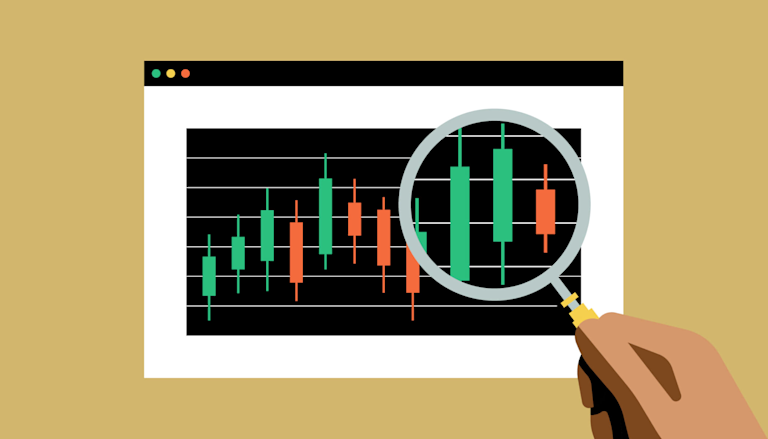
Exploring the Future of Crypto Trading Platforms
In the rapidly evolving landscape of digital finance, Crypto Trading Platforms https://brandondonnelly.com/category/developer-platform have emerged as essential tools for investors and traders alike. They serve as gateways to the world of cryptocurrencies, enabling users to buy, sell, and trade various digital assets with ease. This article delves into the intricacies of these platforms, exploring their key features, advantages, and the challenges they face in an ever-changing market.
The Rise of Crypto Trading Platforms
The market for cryptocurrencies exploded in the last decade, with Bitcoin leading the charge. As interest in digital assets grew, the need for effective and user-friendly trading platforms became apparent. Crypto trading platforms allow users to trade a variety of cryptocurrencies, from established options like Bitcoin and Ethereum to newer entrants like Cardano and Solana. They cater to both novice traders looking to dip their toes into the crypto waters and seasoned investors with sophisticated trading strategies.
Key Features of Crypto Trading Platforms
A robust crypto trading platform comes equipped with several critical features that enhance user experience and facilitate trading:
- User-Friendly Interface: Most reputable platforms prioritize usability, offering intuitive interfaces that make navigation simple for both beginners and experienced traders.
- Security Measures: Given the high profile of cryptocurrencies, security is paramount. The best trading platforms employ advanced security measures, including two-factor authentication (2FA), cold storage of assets, and encryption protocols.
- Diverse Asset Selection: A wide range of available cryptocurrencies allows traders to diversify their portfolios. This diversity can help mitigate risks associated with individual asset volatility.
- Real-Time Market Data: Access to live market data and trading charts is crucial for traders. The best platforms provide tools for technical analysis and insights into market trends.
- Customer Support: Reliable customer support is essential for resolving issues that may arise. Many platforms offer 24/7 support via chat, email, or phone.
- Fee Structure: Understanding the platform’s fee structure is vital. Different platforms have various fees for trading, withdrawal, and deposits, which can significantly impact profitability.

Types of Crypto Trading Platforms
There are several types of trading platforms catering to different trading styles and preferences:
1. Centralized Exchanges (CEX)
Centralized exchanges are the most common platforms for trading cryptocurrencies. They act as intermediaries, matching buyers and sellers. These platforms are typically user-friendly and offer a wide range of cryptocurrencies. Some of the most popular centralized exchanges include Binance, Coinbase, and Kraken.
2. Decentralized Exchanges (DEX)
DEXs operate without a central authority, allowing users to trade directly with one another. They are gaining popularity because they offer greater privacy and control over funds. Popular DEXs include Uniswap and SushiSwap. However, they can be more complex for beginners.

3. Peer-to-Peer (P2P) Exchanges
P2P exchanges facilitate direct transactions between users, eliminating the need for intermediaries. These platforms often include an escrow system to manage transactions securely. LocalBitcoins and Paxful are examples of P2P platforms that provide a unique trading experience.
The Benefits of Using Crypto Trading Platforms
There are numerous benefits associated with using crypto trading platforms:
- Accessibility: Crypto trading platforms are accessible to anyone with an internet connection, allowing people from all walks of life to invest in cryptocurrencies.
- Liquidity: Centralized exchanges, in particular, offer high liquidity, enabling traders to buy and sell assets quickly without large price fluctuations.
- Variety of Trading Options: From spot trading to derivatives, margin trading, and futures, platforms often provide various avenues for trading.
- Educational Resources: Many platforms offer tutorials, webinars, and market analysis, which can help novice traders become more knowledgeable about cryptocurrency trading.
Challenges Facing Crypto Trading Platforms
Despite their advantages, crypto trading platforms face several significant challenges:
- Regulatory Scrutiny: Governments worldwide are increasingly scrutinizing cryptocurrency markets. Compliance with regulations can be complex and varies by jurisdiction.
- Security Risks: While platforms take measures to enhance security, they remain targets for hackers. Users must exercise personal responsibility regarding their data and funds.
- Volatility: Cryptocurrency markets are notoriously volatile. Prices can fluctuate wildly within short periods, posing risks for investors.
The Future of Crypto Trading Platforms
Looking ahead, the future of crypto trading platforms is promising yet uncertain. As technology and regulations evolve, we can expect innovations that increase security and usability. The proliferation of decentralized finance (DeFi) and non-fungible tokens (NFTs) may also shape the future landscape of trading platforms. Furthermore, in response to regulatory challenges, platforms may adopt more rigorous compliance measures, ultimately enhancing user trust and security.
Conclusion
In conclusion, crypto trading platforms have revolutionized the way individuals engage with digital assets. They provide essential features that empower both novice and experienced traders. However, challenges such as regulatory scrutiny, security concerns, and market volatility continue to pose risks. As this sector of the financial world evolves, staying informed and choosing the right platform is crucial for successful trading in the exciting realm of cryptocurrencies.
Leave a Reply